|
In a world that often romanticizes the idea of eternal love and "happily ever after," the notion of ending a relationship can be met with skepticism and sadness. However, it's essential to recognize that there are circumstances when ending a relationship can actually be a positive and transformative step. In fact, staying in a relationship beyond the point of healthy uncoupling can be detrimental to the mental and emotional health of the partners (and children) in the marriage. The Christianization of our society has sold us a story that shames the naturally occurring ending of some relationships - this is not a story that you have to accept. It's okay for you to feel positive as you move forward to end your marriage or long-term relationship. While, of course, the decision is never taken lightly, here are some reasons why ending a relationship can be a good thing:
The decision to end a marriage or long-term relationship is never easy. It's a step that comes with a multitude of emotions, questions, and uncertainties. Yet, there are times when divorce or ending the relationship can be a good thing – a choice that leads to growth, healing, and the chance for both partners to embark on new journeys. Ending a relationship with love and compassion is a path that, while challenging, can pave the way for a healthier and brighter future. Recognizing the Signs of a Healthy Ending In certain situations, divorce can indeed be a positive step. When a relationship becomes toxic, marked by constant conflicts, emotional or physical abuse, or a lack of support and connection, it can erode the well-being of both partners. In these instances, choosing to end the relationship can be an act of self-care and self-preservation. Additionally, when partners have grown apart and their values, goals, or life paths have diverged significantly, it may be beneficial to part ways amicably. Rather than clinging to a relationship that no longer serves both individuals' best interests, ending it can open doors to new opportunities for personal growth, happiness, and fulfillment. Approaching the End with Love and Compassion The end of a relationship need not be marked by bitterness and resentment. Choosing to end a relationship with love and compassion can lead to a more graceful and healing separation process.
Embracing New Beginnings While the decision to divorce or end a relationship can be difficult, it also opens the door to new beginnings. It offers the opportunity for personal growth, self-discovery, and the pursuit of individual goals and aspirations. Embracing this new chapter can lead to a more fulfilled life, even in the midst of challenges.
0 Comments
As much as we might wish otherwise, we are not omnipotent beings capable of fulfilling every need and desire our partner has. Human beings are inherently diverse, and our needs are multifaceted. These needs can range from emotional support and intimacy to practical assistance and validation. While our intentions might be pure, our limitations are a reality we must confront. It's important to remember that being unable to meet all our partner's needs does not diminish our worth or commitment to the relationship. Recognizing our limitations is a sign of self-awareness. Just as our partner is not responsible for fulfilling all our needs, it is unhealthy for us to carry the responsibility of our partner's needs (more on this here). Communication Is Key When we realize that we're unable to meet certain needs of our partners, honest and open communication becomes more crucial than ever. Suppressing these feelings of inadequacy or guilt can create a barrier in the relationship. Instead, engage in a heartfelt conversation with your partner. Express your willingness to understand and support them while acknowledging the areas where you might fall short. This dialogue is not about blaming oneself or one's partner, but rather about finding solutions together. Perhaps you can work together to identify alternative sources of support or find compromises that address both partners' needs. Remember, you are only limited by your own creativity! Transparency and vulnerability in these discussions can pave the way for a more resilient and compassionate connection. Seeking External Support When there are specific needs that you cannot fulfill due to inherent limitations or circumstances, it's wise to explore external avenues of support. This could involve seeking advice from friends, family, or professionals who specialize in the relevant areas. For instance, if your partner is dealing with a mental health challenge, a trained therapist could offer the expertise and guidance necessary to navigate that journey. If your seeking to increase your creativity regarding the meeting of needs in your relationship, coaching is a great tool and I encourage you to seek out a free first time (joint or individual) session. Cultivating Empathy and Understanding In times when you cannot meet your partner's needs, empathy and understanding become invaluable tools. First, use these tools on yourself, and take care to not put yourself down or enter into a shame cycle because of your inability to meet your partner's needs. You can also put yourself in their shoes and imagine how it might feel to have an unfulfilled need. Empathy and compassion (for self and other) are the 'grease' in a relationship - they keep it running smoothly, so use them as frequently as possible! Encourage your partner to share their feelings and thoughts openly. Validate their emotions and reassure them that their needs are valid, even if you cannot meet them entirely. Sometimes, just being a supportive presence and actively listening can make a significant positive impact. The Strength of a Resilient Relationship An inability to meet all of our partner's needs doesn't equate to failure or inadequacy. Instead, it's an opportunity for growth and strength within the relationship. Challenges are a natural part of any partnership, and how we navigate them defines the depth of our connection. By communicating openly, seeking external support, and cultivating empathy, partners can find new ways to support each other through various situations. It is also important to note that sometimes ending a relationship can be a good thing, and the most appropriate thing in a given situation. If a relationship ends, you can close that chapter with love and grace. When you and your partner are committed to a healthy "meeting of the needs", without blame or judgement, incredible things can happen. So, let go of how you think it should be, get curious, and explore how things can be when you let your partner "off the hook" for meeting your needs. Have you ever experienced that overwhelming wave of discomfort and regret after opening up and being vulnerable? That gnawing feeling that maybe you revealed too much or shared something that should have remained hidden? Welcome to the realm of the vulnerability hangover, a phenomenon that many of us have encountered but few truly understand. Let's delve into what a vulnerability hangover is and explore strategies to overcome it.
Understanding the Vulnerability Hangover The term "vulnerability hangover" was coined by Brené Brown, a renowned researcher and storyteller who has extensively studied vulnerability, shame, and courage. This phenomenon refers to the intense feeling of emotional discomfort or even regret that follows after we've shared something personal, authentic, or vulnerable with others. It's that sinking sensation that leaves us questioning our decision to be open and exposed. Why Does It Happen? Vulnerability hangovers arise from a collision of emotions. When we share something personal or authentic, we open ourselves to the possibility of judgment, rejection, or misunderstanding. Our brain's natural response to potential threats is to trigger discomfort, anxiety, and even shame. This is a survival mechanism, but in the context of vulnerability, it can manifest as a vulnerability hangover. Curing the Vulnerability Hangover While the vulnerability hangover can be uncomfortable, it's important to recognize that it's a sign of growth and courage. It indicates that you've stepped out of your comfort zone and allowed yourself to be seen authentically. Here are strategies to help you navigate and cure the vulnerability hangover: 1. Self-Compassion: Practice self-compassion and remind yourself that feeling vulnerable is a natural part of being human. Treat yourself with kindness and understanding, just as you would a close friend who's experiencing a similar situation. 2. Reflect: Take some time to reflect on why you chose to be vulnerable in the first place. What was the intention behind sharing your thoughts or experiences? Often, recognizing the positive reasons behind your actions can help alleviate the discomfort. 3. Normalize It: Understand that vulnerability hangovers are common, especially when we step outside our comfort zones. Knowing that others experience this too can reduce the feeling of isolation. 4. Challenge Negative Thoughts: If you find yourself dwelling on negative thoughts or self-criticism, challenge them. Consider whether those thoughts are based on facts or if they're being blown out of proportion by your vulnerability hangover. 5. Seek Support: Talk to someone you trust about how you're feeling. Sharing your vulnerability hangover experience with a friend or confidant can help you process your emotions and gain a different perspective. 6. Embrace Growth: Remind yourself that vulnerability is a catalyst for personal growth and connection. The discomfort you're feeling is a sign that you're pushing boundaries and evolving as an individual. 7. Stay Present: Practice mindfulness techniques to stay present and grounded. Focusing on the here and now can help alleviate the anxiety associated with a vulnerability hangover. 8. Practice Gradual Exposure: If vulnerability hangovers are a recurring issue for you, consider practicing gradual exposure. Start by sharing smaller, less intense vulnerabilities before gradually working your way up to more personal topics. 9. Embrace Imperfection: Recognize that nobody has it all figured out. Embrace your imperfections and understand that vulnerability is a sign of authenticity, not weakness. 10. Celebrate Courage: Acknowledge and celebrate the courage it took to be vulnerable. Focus on the bravery you demonstrated rather than fixating on any perceived shortcomings. The vulnerability hangover may be uncomfortable, but it's a testament to your willingness to be genuine and open with others. Instead of allowing it to hold you back, use it as a stepping stone toward personal growth and deeper connections. By practicing self-compassion, reframing your thoughts, and celebrating your courage, you can navigate vulnerability hangovers and reap the rewards of living an authentic and fulfilling life. Relationships thrive on understanding, compromise, and empathy. When individuals become entrenched in the belief that their opinions are absolute truths, while dismissing the perspectives of others as unequivocally wrong, it can inflict significant damage on those relationships. Being stuck in the notion of 'being right' erodes the foundations of healthy connection, and has a detrimental effect on communication. Effective communication is the foundation of healthy relationships, whether personal or professional. When individuals hold a rigid belief in their own moral superiority or correctness, it creates an environment of closed-mindedness and undermines meaningful dialogue. Self-righteousness is defined as, "having or characterized by a certainty that one is totally correct." I would describe it as, "lacking understanding regarding the difference between data and story, and believing that "your story" is "fact", or "the truth." Self-righteousness breeds a closed-minded attitude that leaves little room for empathy, curiosity, or understanding. When individuals firmly believe they possess the ultimate truth or moral high ground, they tend to dismiss alternative perspectives. Consequently, conversations become one-sided and lack the necessary exchange of ideas, thus preventing growth, learning and connection. In professional relationships, a lack of openness inhibits the development of creative solutions and stifles collaboration, leading to interpersonal conflicts and stagnation. In personal relationships, self-righteousness blocks connection, and prevents accurately seeing the other persona and knowing who they really are in their most beautiful, authentic expression. When one person adamantly insists on being right and disregards the other person's viewpoint, it creates an environment of hostility and defensiveness. The conversation becomes a battleground, with both parties striving to assert their correctness rather than engaging in a meaningful exchange of ideas. As a result, dialogue becomes superficial, leading to misunderstandings, resentment, and strained relationships.
Self-righteousness often manifests as judgment and condescension towards others. Those trapped in their own righteousness tend to view opposing viewpoints as inferior or flawed. This judgmental attitude alienates others and creates a hostile atmosphere, discouraging open communication. People become defensive when they sense condescension, and as a result, constructive dialogue becomes nearly impossible. The focus shifts from understanding and cooperation to proving one's superiority, further widening the communication gap.
Empathy is an essential component of effective communication. However, self-righteousness hampers the ability to empathize with others' experiences and perspectives. When individuals consider themselves morally superior, they may dismiss or belittle the emotions and experiences of those who disagree with them. This lack of empathy can lead to misunderstandings, hurt feelings, and broken relationships. Successful communication requires genuine efforts to understand and acknowledge the feelings and viewpoints of others, even if they differ from our own. Additionally, self-righteousness often causes individuals to resist or disregard feedback and constructive criticism. When people believe they are always right, they are less likely to engage in introspection and self-improvement. Consequently, communication becomes stagnant, as growth and development are hindered by the unwillingness to consider alternative perspectives. True progress is only possible when we are open to feedback and willing to challenge our own beliefs and biases. Overcoming Self-Righteousness:
The rigid belief that one is right and the other is wrong can seriously damage relationships. We can foster stronger, healthier connections by understanding the consequences of this mindset and implementing strategies to cultivate open-mindedness, active listening, empathy, and constructive dialogue. Remember, relationships thrive on mutual respect, understanding, and a willingness to acknowledge and embrace different perspectives.
Acquiring KnowledgeAcquiring knowledge is a multifaceted process that extends beyond intellectual understanding. It involves engaging with information at intellectual, emotional, and habitual levels, each offering a distinct dimension of comprehension and integration. Without recognition of the levels of knowing, we can block ourselves from further personal growth and development, accurate self assessment, and deeper connections. 3 Ways To Know: In the Mind (Intellectually)Intellectual knowledge refers to the cognitive understanding of facts, theories, concepts, or information. It involves grasping ideas, theories, and principles through reasoning, analysis, and logical thinking. Intellectual knowledge is acquired through education, reading, research, and studying, and is often rooted in objective facts and evidence. Example: I know that eating fast food is unhealthy and will cause me to gain weight. Action/Result: I continue you eat fast food because this knowledge is just an intellectual understanding, and I don't really "know" it yet. 3 Ways To Know: In the Heart (Emotionally)Emotional knowledge encompasses the experiential and empathetic understanding of information. It involves connecting with knowledge on a deeply emotional level, allowing us to grasp its impact and significance. Emotional knowledge is gained through personal experiences, empathy, and emotional intelligence. It involves recognizing and appreciating the emotional nuances and implications of the knowledge, enabling us to relate to others' experiences and perspectives. Example: I have a personal experience with health or weight issues. Action/Result: I struggle to stop myself from eating fast food because even though I "get" that is is bad for me, I still in the process of aligning my actions with this truth. 3 Ways To Know: In the Body (Habitually)Habitual knowledge refers to the practical application and embodiment of knowledge through repeated action and behavior. It involves integrating knowledge into our daily lives, routines, and habits. Habitual knowledge is developed through practice, repetition, and consistent application. It transforms knowledge from a theoretical concept into a practical skill or ingrained behavior. By embodying knowledge habitually, we can effectively translate intellectual understanding into meaningful action. Example: I have created habits and routines to support my health and weight. Action/Result: I don't eat fast food because I have a deep understanding of how bad it is for my health. Because I honor the love I have for myself, my body, and my life, I am no longer even tempted to eat things that aren't good for me.
Intellectual, emotional, and habitual knowledge work together synergistically to provide a more profound and transformative understanding of the world. By actively engaging with knowledge in all its dimensions, we embark on a journey of growth, empathy, and positive change.
Effective Communication: Transcending the Reptile BrainCommunication is the cornerstone of human interaction, enabling us to convey ideas, share emotions, and build connections. However, to truly engage in meaningful conversations, it is essential to transcend our primal instincts and avoid speaking from our reptile brain. In this article, we delve into the concept of the reptile brain, its impact on communication, and explore strategies to communicate more effectively by tapping into our higher cognitive functions. Effective Communication: Understanding the Reptile BrainThe reptile brain, also known as the primitive brain or the lizard brain, refers to the oldest part of our brain, evolutionarily speaking. It controls basic survival functions, including fight-or-flight responses and instinctual behaviors. When we speak from this primal state, our communication tends to be reactive, impulsive, and driven by self-preservation rather than fostering understanding and connection. Recognizing the Reptile Brain's InfluenceThe reptile brain's influence on communication manifests in various ways. It often leads to knee-jerk reactions, defensiveness, and an inability to truly listen and empathize with others. Speaking from this primitive state can escalate conflicts, hinder effective problem-solving, and damage relationships. Awareness of this influence is the first step toward overcoming its limitations. Cultivating Emotional IntelligenceEmotional intelligence plays a pivotal role in effective communication. By developing self-awareness, empathy, and emotional regulation, we can rise above the limitations of the reptile brain. When faced with challenging conversations, take a moment to identify and understand your emotional triggers. By acknowledging and managing these emotions, you can respond thoughtfully instead of reacting impulsively. Active Listening and EmpathyTo foster effective communication, it is vital to engage in active listening and cultivate empathy. When we listen attentively, seeking to understand rather than simply waiting for our turn to speak, we create an environment conducive to meaningful dialogue. Practice active listening by maintaining eye contact, asking clarifying questions, and paraphrasing to ensure accurate understanding. Engaging the Pre-Frontal CortexThe pre-frontal cortex, the most evolved part of our brain, is responsible for complex cognitive processes, such as reasoning, problem-solving, and empathy. By engaging this part of the brain, we can transcend the limitations of the reptile brain and communicate more effectively. Take a pause before responding, allowing yourself time to process information, analyze perspectives, and choose your words thoughtfully. Mindfulness and ReflectionIncorporating mindfulness practices into communication can help us become more aware of our thought patterns, emotions, and reactions. Mindfulness enables us to observe our reptile brain's impulses without getting swept away by them. Regular reflection on our communication experiences allows us to identify areas for improvement and refine our approach, fostering growth and enhancing our communication skills. Effective communication is an art that requires transcending our primal instincts and tapping into higher cognitive functions. By recognizing the influence of the reptile brain and consciously engaging our pre-frontal cortex, we can communicate with empathy, clarity, and intention. Cultivating emotional intelligence, active listening, and practicing mindfulness empower us to navigate conversations more skillfully, fostering deeper connections and achieving more positive outcomes. So, the next time you engage in a conversation, remember to rise above the reptile brain and let the power of higher-level thinking elevate your communication to new heights.
Communication Tip: Check Your IntentionThe human brain is wired for connection, and all of us desire to be seen, heard, and understood as well as feel love, safety, and connection. The primary tool that we use to achieve these things is communication. However, the effectiveness of these conversations often hinges on the intentions behind them. By taking a moment to check our motives before engaging in a conversation, we can foster better connections, promote understanding, and ensure positive outcomes. Communication Tip: Understanding the Influence of IntentionIntention forms the foundation of effective communication. It shapes the way we express ourselves and influences how others perceive and respond to us. Recognizing the power of intention allows us to be more mindful of the impact our words and actions can have on others. By aligning our intentions with our words and energy, we can create more effective communication. Communication Tip: Reflecting on Your MotivesBefore engaging in a conversation, it is essential to take a moment to reflect on our motives. The three questions that I always ask myself are:
You can also ask yourself:
Honest introspection allows us to become aware of any hidden agendas or biases that might hinder meaningful dialogue. Communication Tip: Practicing Empathy and RespectChecking our intentions also involves cultivating empathy and respect for the other person's perspective. By genuinely seeking to understand their point of view and respecting their autonomy, we create a safe space for open and honest communication. Avoiding judgment and being receptive to different ideas fosters an atmosphere of mutual respect and cooperation. Communication Tip: Seeking Clarity and Emotional RegulationEmotional intelligence plays a vital role in checking our intentions. Before engaging in a conversation, it is crucial to regulate our emotions and approach the discussion with a clear mind. Being aware of our emotional state allows us to communicate more effectively and avoid unnecessary conflict or misunderstanding. By expressing ourselves calmly and respectfully, we encourage a productive exchange of ideas. Remember: Don't operate from your reptile brain! Communication Tip: Considering the Impact on OthersEvery conversation has the potential to impact others in significant ways. Therefore, it is essential to consider the potential consequences of our words and actions. Are we uplifting and supporting others, or are we inadvertently causing harm or discomfort? By adopting a mindful approach, we can ensure that our conversations contribute positively to the well-being of those involved. Communication Tip: Adapting and Learning:Reflecting on our conversations and their outcomes enables us to grow and adapt. It allows us to learn from our mistakes, refine our intentions, and improve our communication skills. Embracing a growth mindset helps us become more receptive to feedback, leading to more meaningful and fulfilling conversations in the future. Every conversation we engage in offers an opportunity to connect, learn, and grow. By checking our intentions before initiating a dialogue, we can steer our conversations towards positive outcomes. Cultivating empathy, practicing emotional regulation, and considering the impact on others are crucial steps towards fostering healthy and meaningful communication. So, the next time you find yourself preparing for a conversation, take a moment to reflect on your motives, and let your intentions pave the way for a more enriching and harmonious exchange of ideas.
Letting Go of People in Your PastOne of my favorite quotes is, "You are the average of the five people you spend the most time with." by Jim Rohn. I love this quote because it speaks to the influence that other people have on us. This process of taking on the vibration, characteristics, thoughts and beliefs of others happens mostly unconsciously. The fact is that by our very nature, we, as humans, exchange the very essence of our substances when we are in relationship with each other. This is why it is imperative that we take great care with who you allow into our lives. Healthy people understand the need to create boundaries in order to express their truest, most authentic selves. Relationships are often characterized by layers of boundaries. As you become the healthiest, most healed version of yourself, it is normal to continue to update your boundaries & the rules for what behaviors you allow in your life. It is natural to outgrow people and situations. Creating new "higher standards" for who you allow into your life is a sign that the investments you've been making in your personal growth are paying off. (*Please note that having high standards for how people are allowed to interact with you allows you to increase the intimacy and vulnerability you have with others. With healthy boundaries you can actually be more authentic and present with other people in your life. I mention this because sometimes people get confused between having high standards and pushing people away to avoid emotional intimacy. That's something different, and not what I'm recommending.)
In a similar way, I adjust the rules for what behaviors I allow in each circle in response to the impact that circle has on my life. For example, in my Core Circle and Inner Circle, I absolutely don't accept dishonesty. Period. If you are repeatedly dishonest with me, then you move out to a distant circle. If you are allowed to influence me and the decisions that I make regarding my one precious life, then (hell, yes!) I require specific standards of behavior from you. That is how much I care about myself and the life that I'm creating. Now, let's talk about that furthest outside circle, the 'Restricted' circle. This is for people who treat us in a way that creates harm or requires us to self abandon. For example, if someone repeatedly uses gaslighting behavior with me, or if someone has harmed me or a loved one and refuses to take accountability for that harm, that person is not allowed in my life. Unfortunately, this can sometimes be someone close to us. For me, this is my mom. That sucks, but in order to love myself and honor the life that I have worked hard to create, it is necessary. As a highly sensitive person, empath, and introvert, building boundaries has been one of the most challenging areas of personal growth and development for me. I am a naturally compassionate person who feels everyTHING and everyONE, and for many years it felt unempathetic and unloving to have boundaries. As I healed and grew in my personal growth journey, I realized that the most loving thing that I can do for myself and others is define my edges with firm boundaries. If you identify and highly sensitive or empathetic, learning to establish healthy boundaries is especially important because of the high impact that other people have on you. Even people who have been a core part of your past, aren't necessarily part of your destiny. One of the most powerful acts of self love in your life is building boundaries and regulating the impact that others have on you. The 10 Best Books To Improve Your CommunicationEffective communication is an essential skill that greatly impacts our personal and professional lives. Whether you're aiming to enhance your relationships, excel in your career, or simply express yourself more clearly, reading books on communication can be a valuable investment. With a plethora of options available, I've have compiled a list of the ten best books that will equip you with the tools and insights to become a better communicator. The 10 Best Books To Improve Your Communication: Crucial Conversations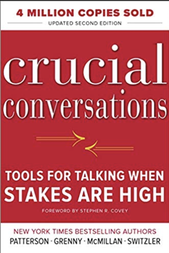 "Crucial Conversations: Tools for Talking When Stakes Are High" by Kerry Patterson, Joseph Grenny, Ron McMillan, and Al Switzler. This book offers practical strategies to handle difficult conversations. It provides tools to navigate emotionally charged situations, build mutual understanding, and achieve positive outcomes. Here are a few of my favorite quotes from the book: “As much as others may need to change, or we may want them to change, the only person we can continually inspire, prod, and shape—with any degree of success—is the person in the mirror.” “Instead of getting hooked and fighting back, break the cycle. See their aggressive behavior for what it is – a sign of violated safety – then step out of the conversation, build safety, and step back into the content.” “One of the best ways to persuade others is with your ears—by listening to them.” The 10 Best Books To Improve Your Communication: How to Win Friends and Influence People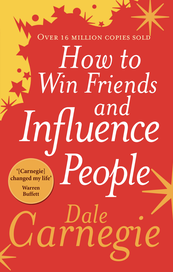 "How to Win Friends and Influence People" by Dale Carnegie: Considered a classic, this book provides timeless advice on building strong relationships, making a lasting impression, and influencing others through effective communication techniques. Here are some of my favorite quotes from the book: ""Success in dealing with people depends on a sympathetic grasp of the other person’s viewpoint."" "Three-fourths of the people you will meet are hungering for sympathy. Give it to them and they will love you." "One reason why birds and horses are not unhappy is because they are not trying to impress other birds and horses." The 10 Best Books To Improve Your Communication: Nonviolent Communication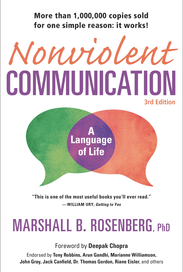 "Nonviolent Communication: A Language of Life" by Marshall B. Rosenberg: Rosenberg's book emphasizes compassionate communication, promoting empathy, and resolving conflicts peacefully. It teaches readers to express themselves honestly and listen with empathy to foster understanding and connection. “All violence is the result of people tricking themselves into believing that their pain derives from other people and that consequently those people deserve to be punished.” “We are dangerous when we are not conscious of our responsibility for how we behave, think, and feel.” “My theory is that we get depressed because we’re not getting what we want, and we’re not getting what we want because we have never been taught to get what we want. Instead, we’ve been taught to be good little boys and girls and good mothers and fathers. If we’re going to be one of those good things, better get used to being depressed. Depression is the reward we get for being “good.” The 10 Best Books To Improve Your Communication: Influence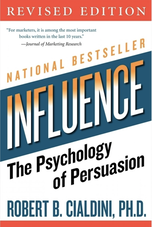 "Influence: The Psychology of Persuasion" by Robert Cialdini: Understanding the psychology behind persuasion is crucial for effective communication. Cialdini explores six principles of influence and offers valuable insights into how to ethically influence others' decisions. Here are some of my favorite quotes from this book: “In general, when we are unsure of ourselves, when the situation is unclear or ambiguous, when uncertainty reigns, we are most likely to look to and accept the actions of others as correct.” “Our best evidence of what people truly feel and believe comes less from their words than from their deeds.” “We will use the actions of others to decide on proper behavior for ourselves, especially when we view those others as similar to ourselves.” The 10 Best Books To Improve Your Communication: Difficult Conversations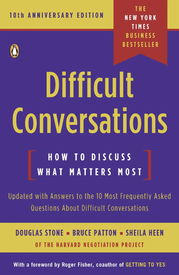 "Difficult Conversations: How to Discuss What Matters Most" by Douglas Stone, Bruce Patton, and Sheila Heen: This book tackles the art of handling tough conversations with grace and effectiveness. It provides practical frameworks to address sensitive topics, manage emotions, and foster constructive dialogue. Here are some of my favorite quotes from this book: Remind yourself that if you think you already understand how someone feels or what they are trying to say, it is a delusion. Remember a time when you were sure you were right and then discovered one little fact that changed everything. There is always more to learn.” “People almost never change without first feeling understood.” “Learning that you can’t control the other person’s reaction, and that it can be destructive to try, can be incredibly liberating. It not only gives the other person the space to react however they need to, but also takes a huge amount of pressure off you. You will learn things about yourself based on their reaction, but if you are prepared to learn, you’ll feel free from the desperate need for their reaction to go one certain way.” The 10 Best Books To Improve Your Communication: Made to Stick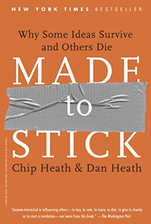 "Made to Stick: Why Some Ideas Survive and Others Die" by Chip Heath and Dan Heath: Clear and memorable communication is a skill that can be honed. The Heath brothers reveal the principles behind sticky ideas and offer strategies to craft compelling messages that resonate with others. Here are some of my favorite quotes from this book: “To make our communications more effective, we need to shift our thinking from "What information do I need to convey?" to "What questions do I want my audience to ask?” “The Curse of Knowledge: when we are given knowledge, it is impossible to imagine what it's like to LACK that knowledge.” “Don't think outside the box. Go box shopping. Keep trying on one after another until you find the one that catalyzes your thinking. A good box is like a lane marker on the highway. It's a constraint that liberates.” The 10 Best Books To Improve Your Communication: The Charisma Myth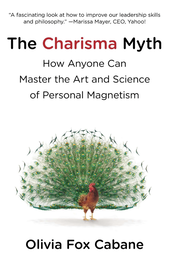 "The Charisma Myth: How Anyone Can Master the Art and Science of Personal Magnetism" by Olivia Fox Cabane: Charisma plays a significant role in effective communication. Cabane shares practical techniques to develop charisma, improve self-confidence, and establish a compelling presence. Here are a few of my favorite quotes from this book: “One of the main reasons we’re so affected by our negative thoughts is that we think our mind has an accurate grasp on reality, and that its conclusions are generally valid. This, however, is a fallacy. Our mind’s view of reality can be, and often is, completely distorted.” “Whatever your mind believes, your body will manifest.” “The key questions are: Which mental state would be most useful in this situation? And which version of reality would help you get there?” The 10 Best Books To Improve Your Communication: Just Listen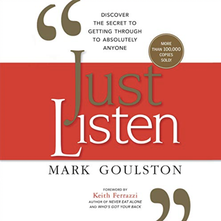 "Just Listen: Discover the Secret to Getting Through to Absolutely Anyone" by Mark Goulston: Active listening is a powerful tool in communication. Goulston provides practical tips to enhance listening skills, build rapport, and foster deeper connections with others. “So when you encounter problem people, realize that there’s a reason they’re behaving the way they do. It may be a new problem: a health scare, money problems, or job pressures. It may be a long-term problem: anxiety about not being good enough for a job, anger at not being respected, fear that you don’t find them attractive or intelligent. And, yes: It may be that they’re actually just jerks (but they’re usually not). Open your own mind and look for the reasons behind the behavior, and you’ll take the first step toward breaking down barriers and communicating with an “impossible” person.” people work hard and do their best, and they want the world to acknowledge that they’re intelligent, valuable, and creative.” “Making someone “feel felt” simply means putting yourself in the other person’s shoes. When you succeed, you can change the dynamics of a relationship in a heartbeat. At that instant, instead of trying to get the better of each other, you “get” each other and that breakthrough can lead to cooperation, collaboration, and effective communication.” The 10 Best Books To Improve Your Communication:Talk Like TED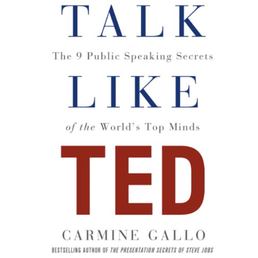 "Talk Like TED: The 9 Public-Speaking Secrets of the World's Top Minds" by Carmine Gallo: Whether you're giving a presentation or simply conversing with others, public speaking skills are invaluable. Gallo distills the techniques used by top TED speakers and offers insights into delivering impactful messages. Here are a few of my favorite quotes from this book: “Science shows that passion is contagious, literally. You cannot inspire others unless you are inspired yourself. You stand a much greater chance of persuading and inspiring your listeners if you express an enthusiastic, passionate, and meaningful connection to your topic.” “It’s been said that success doesn’t lead to happiness; happiness creates success.” “It’s just about being you and being cool with that. And I think when you’re authentic, you end up following your heart, and you put yourself in places and situations and conversations that you love and that you enjoy. You meet people that you like talking to. You go places you’ve dreamt about. And you and up following your heart and feeling very fulfilled.” The 10 Best Books To Improve Your Communication: The Art of Communicating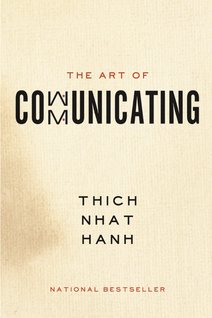 "The Art of Communicating" by Thich Nhat Hanh: This book emphasizes the importance of mindful communication. Hanh provides guidance on cultivating deep listening, speaking from the heart, and fostering understanding in all relationships. Here are a few of my favorite quotes from this book: “Nothing can survive without food. Everything we consume acts either to heal us or to poison us. We tend to think of nourishment only as what we take in through our mouths, but what we consume with our eyes, our ears, our noses, our tongues, and our bodies is also food. The conversations going on around us, and those we participate in, are also food. Are we consuming and creating the kind of food that is healthy for us and helps us grow? When we say something that nourishes us and uplifts the people around us, we are feeding love and compassion. When we speak and act in a way that causes tension and anger, we are nourishing violence and suffering.” “Once you can communicate with yourself, you'll be able to communicate outwardly with more clarity. The way in is the way out.” “Compassion is born from understanding suffering. We all should learn to embrace our own suffering, to listen to it deeply, and to have a deep look into its nature.” Improving communication skills can have a profound impact on every aspect of our lives. The ten books listed above offer valuable strategies, techniques, and insights to enhance your communication prowess. Whether you're seeking to navigate difficult conversations, build strong relationships, or deliver impactful speeches, these books will equip you with the knowledge and tools to become a more effective communicator. Remember, effective communication is a lifelong journey, and reading these books is an excellent step towards continuous growth and improvement.
In any romantic relationship, it is essential for both individuals to maintain a healthy level of independence and personal space. However, when one partner becomes excessively clingy or dependent, it can be a major red flag that warrants attention and consideration. While it is important to recognize that occasional neediness is natural, an overly clingy partner can pose challenges to the overall health and longevity of the relationship.
Defining Clinginess: Clinginess in a relationship refers to a pattern of behavior where one partner becomes excessively needy, requiring constant attention, reassurance, and validation. This behavior often stems from a place of insecurity, fear of abandonment, or a desire to control the other person. Clingy partners often have difficulty being alone or managing their emotions without the constant presence of their significant other. The Red Flags:
Addressing Clinginess: If you find yourself in a relationship with a clingy partner, it is crucial to address the issue proactively and compassionately. Here are a few steps to consider:
While occasional neediness is natural in relationships, excessive clinginess can be a red flag that should not be ignored. It is essential to foster a healthy balance of independence and togetherness in any romantic relationship. |
AuthorMindy Amita AislingAuthenticity EmpowermentLife Coaching for Big-Hearted Overthinkers & Entreprenerds🐲Own Your Weird
🌎 Change Your World ⬇️ DIY Courses 👩🏻💻1:1 RemoteCoaching Fully Accredited ICF Certified Mindy Amita Aisling, is a professionally trained and board-certified leadership, authenticity, and entrepreneur coach.
Mindy exceeds all requirements set forth by the International Coaching Federation (ICF) for Master Coach certification. Mindy is also a licensed mediator, communications coach, and conflict resolution practicer. As a mediator, she has worked both in private practice and as a court appointment mediator at her local county courthouse. Through her innovative approach, she assists clients in examining their limiting beliefs, questioning their assumptions about how the world works, and releasing the notion that they are anything less than perfect. As a result, individuals who work with Mindy cultivate the ability to stand firm in their beliefs, live authentically and decisively, and discover an experience of life that is easy and graceful. In 2021, Mindy founded How to Be Human and Entreprenerd. These programs have enabled her to share her wisdom and knowledge with a broader audience in service of her vision of helping others live authentic lives This, in turn, has empowered more individuals to lead their most TRUE and COURAGEOUS lives. When she is not working, Mindy can be found playing outdoors in the beautiful Pacific Northwest, creating art, spending time with friends & family, or with her nose deep in a book. You can sign up for her newsletter here. Archives
June 2024
Categories
All
ICF Certified Life CoachAffordable Online Life Coaching |
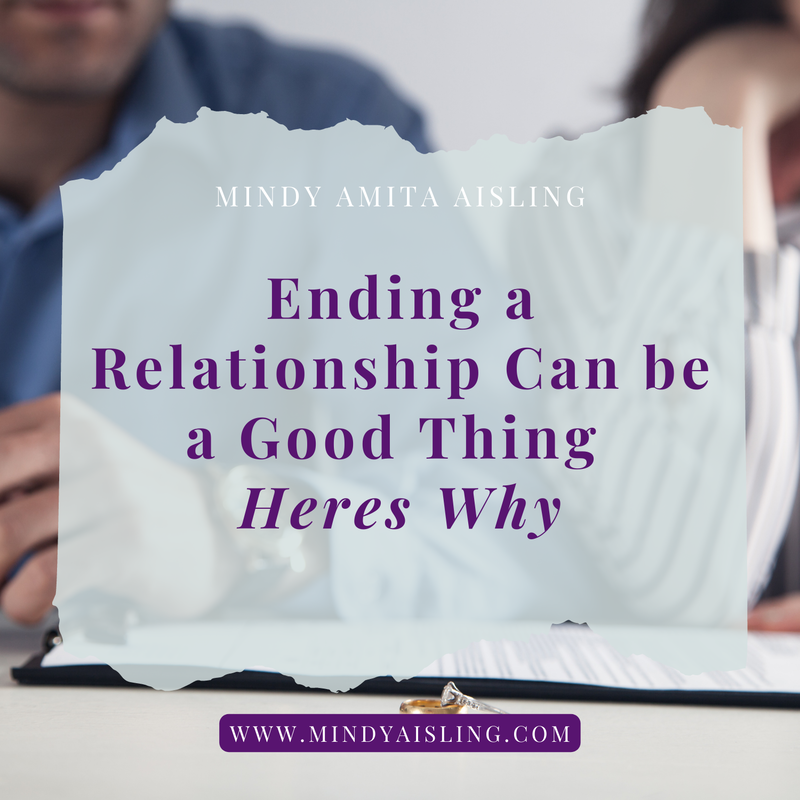
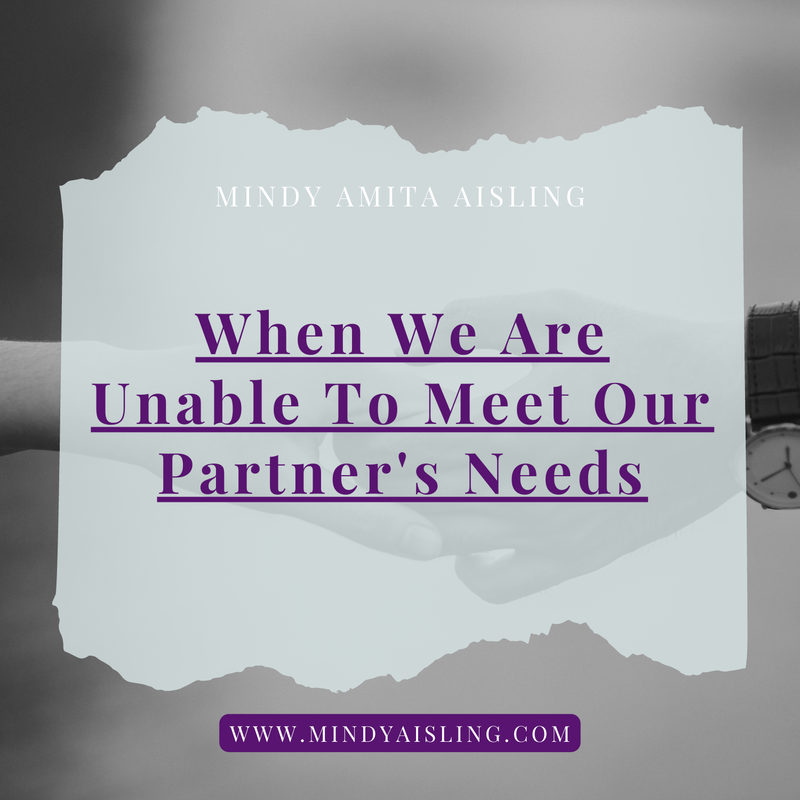

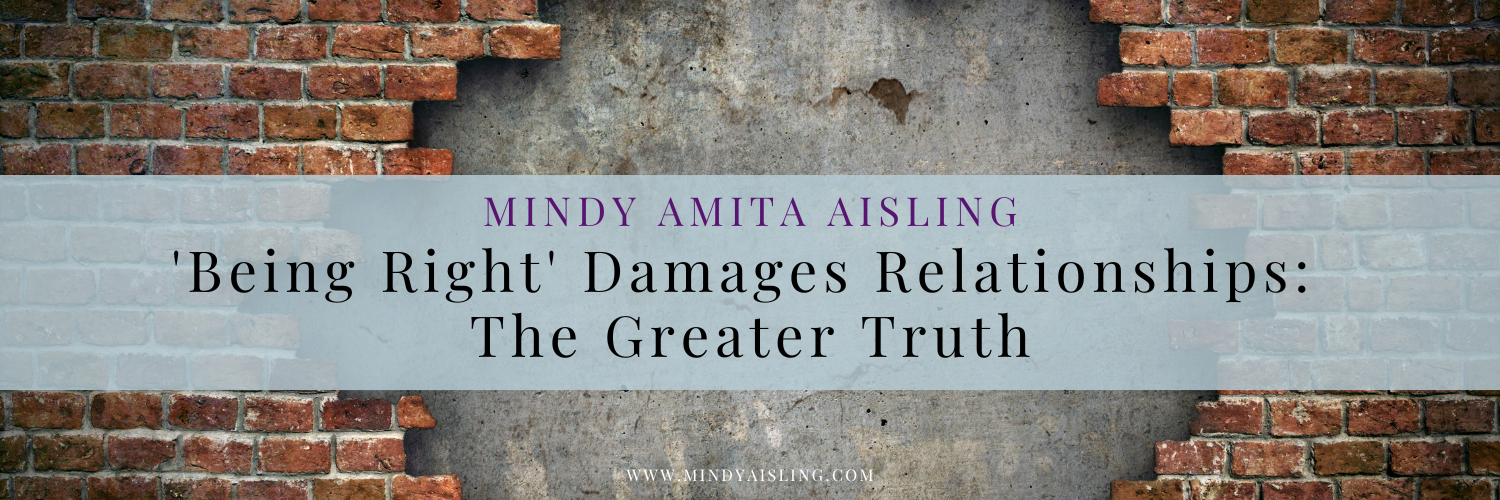
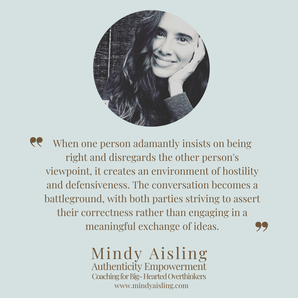

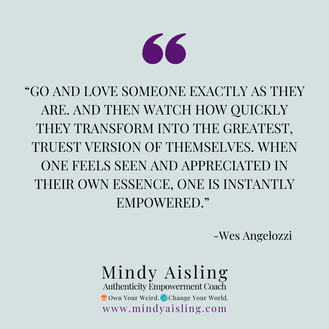

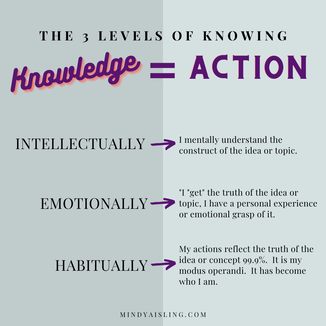



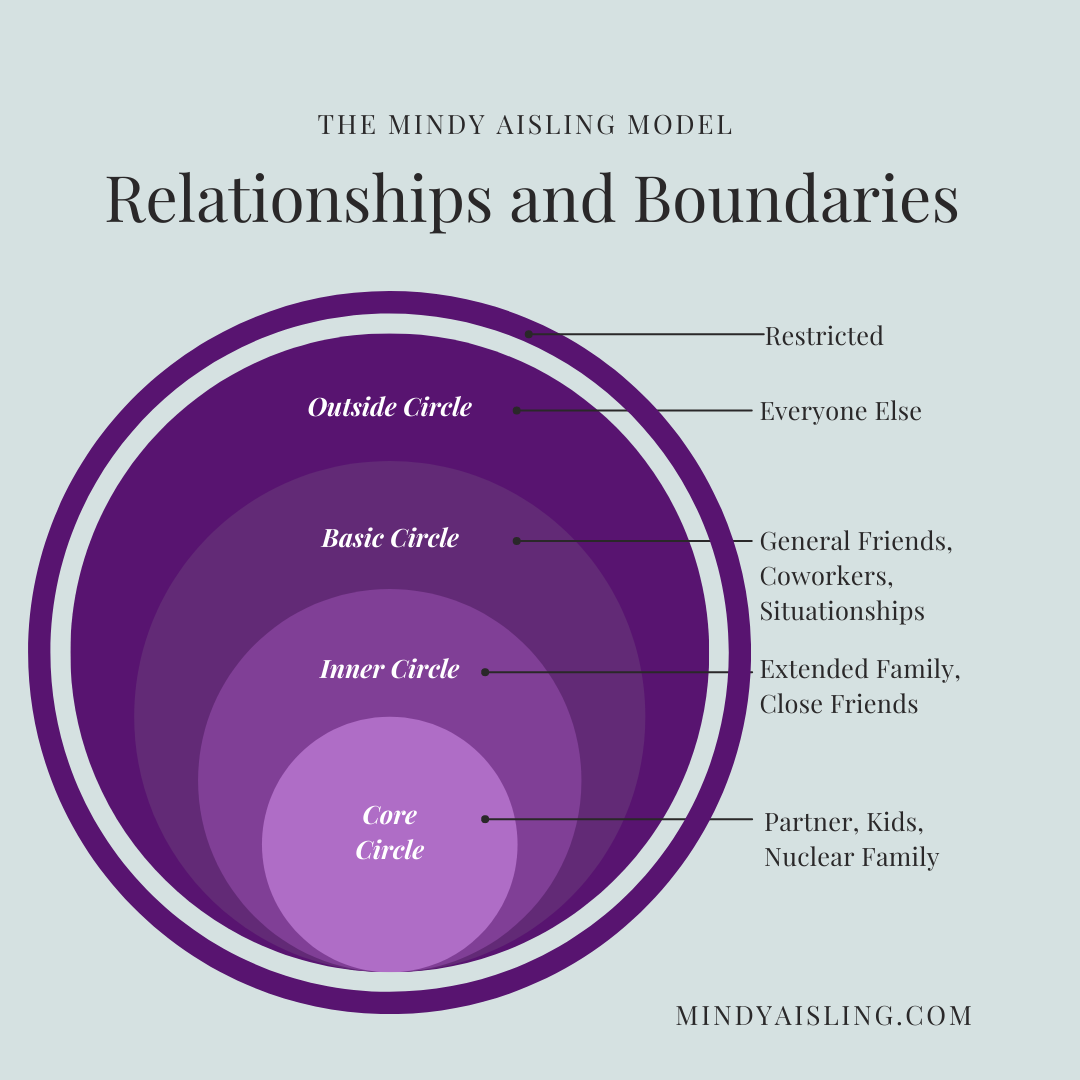

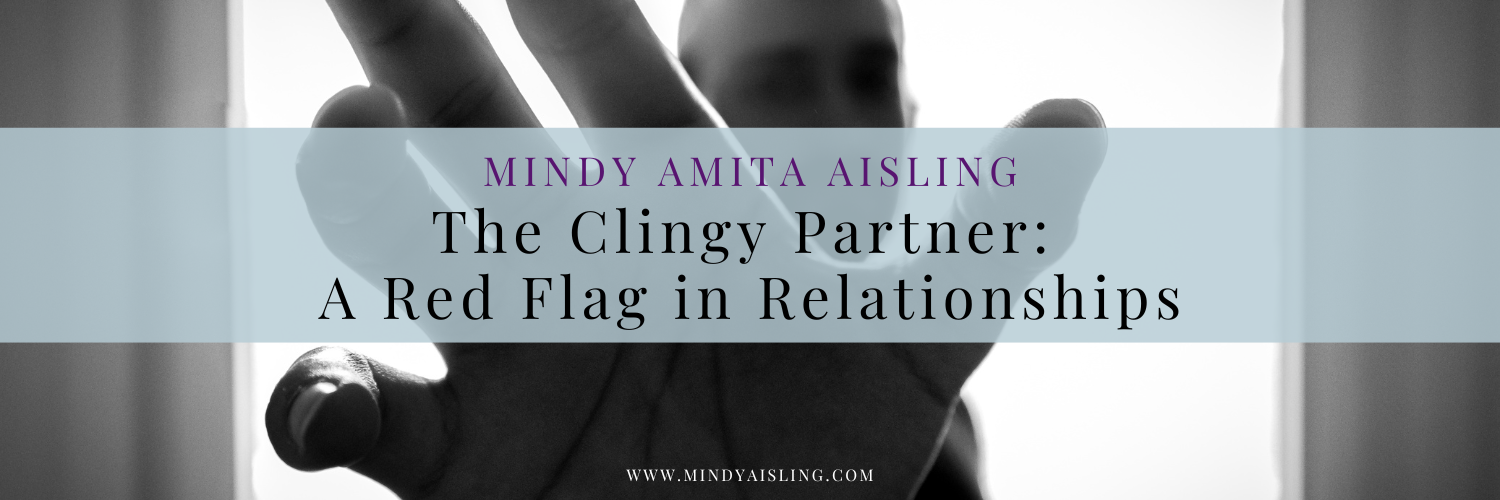
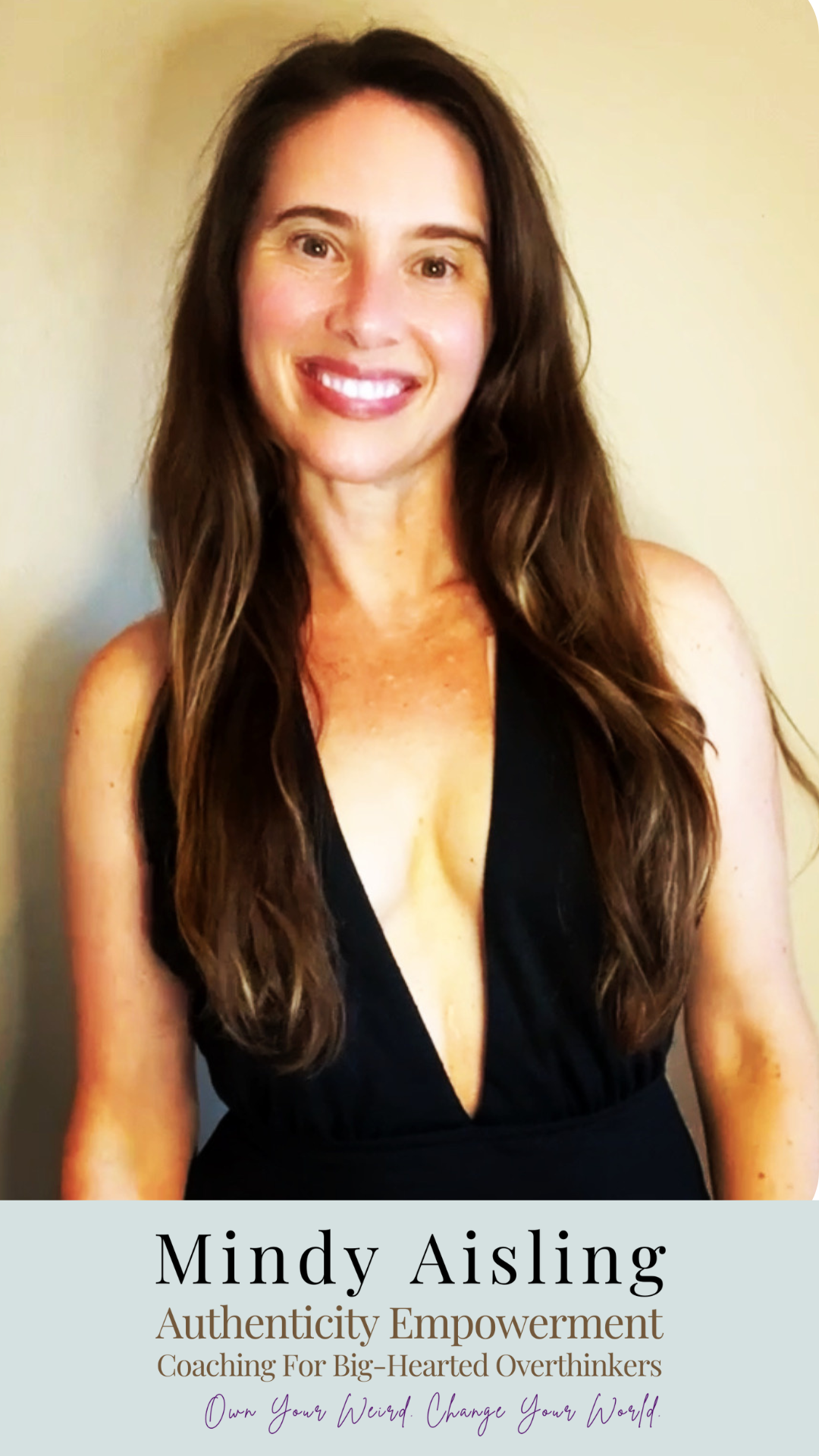
 RSS Feed
RSS Feed
